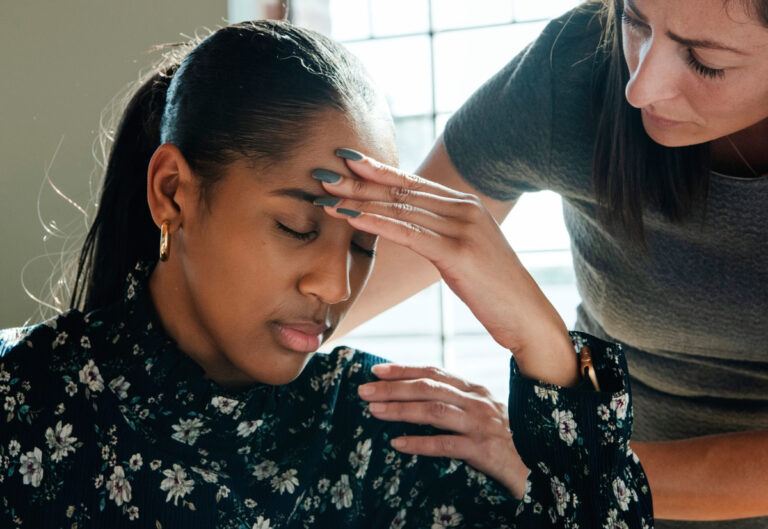Libido is a natural human function in which sexual desire and arousal are experienced. It’s one of the most fundamental instincts and a prerequisite for sexual activity. Low libido can cause discomfort and negatively impact relationships, while high libido can lead to impulsive and potentially problematic sexual behaviour. It’s important for individuals to understand and regulate their libido in a healthy and responsible manner.
What is Loss of Libido?
Loss of libido refers to a decrease in sexual desire. It can be a temporary or permanent issue affecting both men and women. It is essential to consult a healthcare professional if you are experiencing a loss of libido since it may be a symptom of an underlying condition that needs to be addressed.
Stress and Its Effect on Libido
Stress is one of the most common causes of decreased libido. When an individual is under stress, the body releases the hormone cortisol, inhibiting the production of other hormones, including testosterone and oestrogen, which are responsible for sexual desire.
Can we help you?
Leave us your information and one of our coaches will contact you in 24H

Stress can also have an indirect effect on your sex drive as it causes physical symptoms such as fatigue and muscle tension, which in turn impact libido in that these symptoms make it difficult to feel aroused or interested in sexual activity. Stress also leads to mental health issues such as anxiety and depression, and even burnout, all of which can further decrease libido.
How to Manage Loss of Libido
There are several ways to manage or control the loss of libido which will be explored here.
Address Underlying Medical Conditions
Certain conditions, such as diabetes, high blood pressure, and thyroid disorders, can contribute to a loss of libido. It is important to address these conditions as they can affect not only your sexual health but your overall well-being. Medications or treatments can get prescribed to address the underlying condition.
Hormone Therapy
Hormone replacement therapy [1] can help balance hormones such as oestrogen and testosterone, which play an essential role in sexual desire. This treatment should get discussed with a healthcare professional, who can recommend the best remedy for an individual’s case.
A therapist can also help address any emotional or psychological factors contributing to a loss of libido.
Lifestyle Changes
Engaging in routine exercises, having a balanced diet, and getting sufficient sleep can all help to improve overall health and boost libido.
Regular exercise can increase circulation, improve mood and energy levels, and promote better sleep, positively affecting sexual desire. A healthy diet can also help balance hormones and provide the necessary nutrients for sexual health.
medication
Certain medications may also cause loss of libido as a side effect. So, engaging with a healthcare professional about possible alternatives or adjustments in the medication regimen could contribute to reviving low levels of libido.
Mindfulness and Relaxation
Stress and anxiety can significantly impact libido. Therefore, it’s important to practice mindfulness and relaxation techniques to reduce stress and improve overall well-being. These techniques can include yoga, meditation, and deep breathing exercises.
Holistic Therapy
Acupuncture, a Chinese technique that inserts thin needles into specific points of the body, can help to improve sexual function and increase libido by promoting the flow of energy and blood in the body. It’s essential to consult with a licensed acupuncturist to ensure safety and effectiveness.
Also, the first three to four months of menopause can cause loss of libido due to oestrogen deficiency, making it essential to incorporate a holistic approach to managing these hormonal symptoms.
Communication with Partner
Open communication with your partner can help identify and address issues affecting your sexual relationship, improving intimacy and libido. Approach your partner with a sense of curiosity and acceptance, without any judgment or blame.

Moderate Alcohol and Smoking
Moderating alcohol intake may help increase arousal levels, but over-consumption can inhibit sexual activity. Consuming too much alcohol causes temporary loss of libido due to nausea, fatigue, and blurred vision. Limit the amount of alcohol you drink if you are trying to improve your libido.
Smoking also has severe consequences on sexual health. It lowers blood flow to the genitals, thus reducing sex drive and desire. Smoking is one of the leading causes of erectile dysfunction in men.
Experimentation and Exploration
Exploring new experiences and activities with a partner can help to increase sexual desire and can also help to reignite passion and interest in sexual activity. It can include experimenting with different positions and locations or introducing new forms of intimacy, such as sensual massage.
Weight Management
Ensuring your weight remains within the normal range can help to boost libido levels. The body naturally produces fewer hormones when you are overweight, and this might impact libido levels.
Top 5 Tips to Regain Libido
#1 Eat Herbs and Super foods
Incorporating foods high in antioxidants, vitamins, and minerals can help improve sexual health. Herbs such as goat weed, ginseng, and maca root have been traditionally used to boost libido. Super foods like dark chocolate, oysters, and avocados are also known to have aphrodisiac properties.
#2 Try Aromatherapy
Certain essential oils can help to stimulate the senses and increase sexual desire. Oils such as ylang-ylang, jasmine, and patchouli are known to be particularly effective. Use these oils in a diffuser, massage oil, or add a few drops to your bathwater to experience the benefits.
#3 Practice Kegel Exercises
Kegel exercises help strengthen the pelvic floor, which can improve sexual function and increase sexual desire. These exercises mainly involve the pelvic floor muscles, which can be trained by contracting repeatedly and holding for five-second intervals.
#4 Improve Sleep Quality and Quantity
Improving your sleep quality can profoundly affect your sexual desire and stress levels. Restorative sleep promotes hormone production and the healthy functioning of the body’s systems, including our hormonal system. Additionally, adequate sleep can be crucial to maintaining a healthy weight, which is essential for healthy sexual desire.
#5 Engage in Mind-Body Practices
Techniques, such as yoga, tai chi, and qigong, can help to reduce stress and improve overall well-being. These practices can also help to improve sexual health by increasing circulation and promoting relaxation. Additionally, tai chi, which includes dynamic and qigong movement forms, can help to stimulate the nervous system, and increase circulation.
Where Can I Get Help with Loss of Libido?
Medical Professionals
Your primary care physician or a specialist such as a urologist or a gynaecologist can help diagnose and treat any underlying medical conditions contributing to a loss of libido.
Hormone Therapy
Hormone therapy can treat conditions such as menopause, low testosterone, and low sex drive, which are associated with loss of libido.
Therapist/Stress Coach
A therapist or Stress Coach can help address any emotional or psychological factors contributing to a loss of libido. It can help individuals understand and address underlying emotional issues that may be affecting sexual desire and can also help couples to communicate more effectively about sexual matters.
Support Groups
Joining a support group for individuals experiencing a loss of libido can provide a sense of community. Finding a group that resonates with you personally and professionally can help raise awareness, and discussing concerns with others who share similar experiences is essential.
Self-help Resources
The internet is an important source of information on topics including loss of libido. It can provide valuable information and guidance on techniques that may help address the loss of sexual interest. You should, however, be careful to avoid any misleading information and ensure that reputable sources support the information you find. Besides that, there are numerous books on the loss of libido.
Stress & burnout coaching; for 100% recovery!
Reducing stress and recovering from burnout is simply incredibly difficult. The coaches at Meulenberg Training & Coaching understand exactly what you are going through and know how tough it can be. They have often experienced it themselves! With their years of experience and expertise, they are ready to help you step by step toward a full recovery. The results of our one-on-one coaching and absenteeism training will benefit you for a lifetime!
FAQ
References
- nhs.uk – Hormone replacement therapy (HRT) – found on 15/02/2023
Link to page on www.nsh.uk






